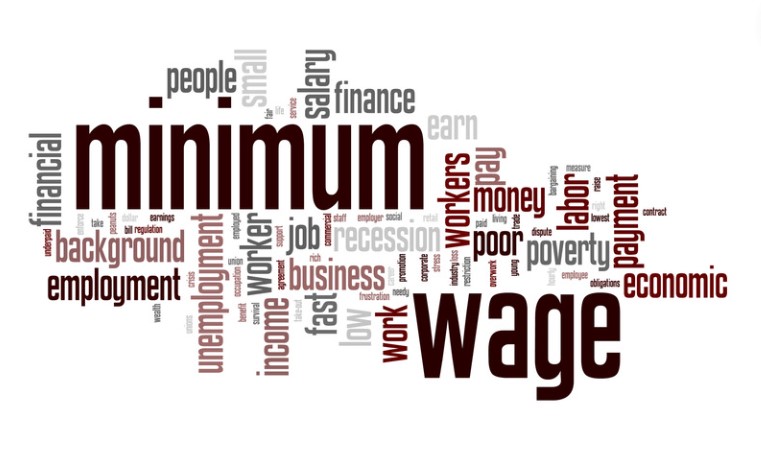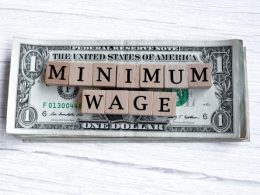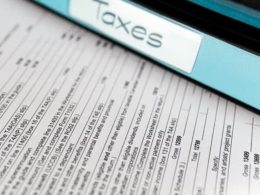Manitoba is a beautiful place to live. We can enjoy the woods in winter, watch the stars and moon rise above us at night, find some of the best beaches on Earth, and hunt down the perfect burger. But it’s also a place where you’ll have to pay taxes. Taxes help maintain our roads and bridges and fund community programs like recreation centres and senior residences. There are many different kinds of taxes in Manitoba, so we made this blog for you to know what are the taxes in Manitoba to live in that beautiful state.
What Are the Taxes in Manitoba?
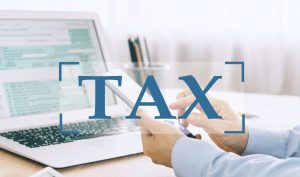
The Manitoba government is relatively progressive and forward-thinking, which means it keeps the tax burden on its citizens relatively low. While there are some taxes in Manitoba, like income and sales taxes, most of their revenue comes from property taxes.
For you to understand how much you’ll pay in taxes when moving to Manitoba, we have explained those taxes below.
Retail Sales Tax
The Retail Sales Tax is a tax levied on the retail sale or rental of the majority of products and services in Manitoba. The tax is calculated on the selling price before the GST (Goods and Services Tax) is applied.
The general sales tax rate is 7%. The RST must be added to any advertised price you would like to charge in your store. You are not allowed to advertise your prices without adding in this tax.
Personal Income tax
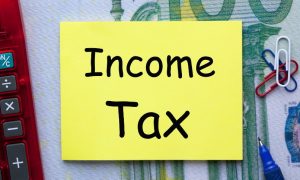
Income tax is a federal and provincial tax that you pay on your income. It’s important to note that you can’t claim a tax credit or deduction for the Manitoba provincial income tax, as it’s considered an individual responsibility (that means you’re responsible for paying it).
If you’re a resident of Manitoba and have income from employment or self-employment, you must pay provincial income taxes on it.
Manitoba Income Tax
The Income Tax Act (ITA) is the law that sets out how income tax is calculated, assessed and paid in Manitoba. The ITA provides for a progressive income tax system, with rates increasing as a person’s taxable income increases.
The Manitoba Budget 2016 revealed the indexing of the Basic Personal Amount (BPA) and personal income tax brackets (Brackets) to the Manitoba Consumer Price Index starting in the 2017 tax year. (CPI). The Manitoba Tax rate for 2023 and 2024 are,
| Tax Rate | 2023 Taxable Income | 2024 Taxable Income |
| 10.80% | First $36,842 | First $47,000 |
| 12.75% | Over $36,842 up to $79,625 | Over $47,000 up to $100,000 |
| 17.40% | Over $79,625 | Over $100,000 |
Real Estate Transfer Tax
You’ll have to pay a real estate transfer tax if you sell or exchange an interest in land, including Canada and Manitoba tax-free bonds.
The amount of the tax depends on the value of the property being transferred and can range from 0% to 2% (see the table below).
| Value of Property | Rate |
| On the first $30,000 | 0% |
| $30,001 to $90,000 | 0.5% |
| $90,001 to $150,000 | 1.0% |
| $150,001 to $200,000 | 1.5% |
| On amounts in excess of $200,000 | 2.0% |
The Canadian real estate transfer tax is a levy that is imposed on the sale or transfer of interests in land, including Farms; Commercial real estate holdings; and Residential properties.
Property Taxes
Property taxes are a tax that is charged on the value of the property. The amount of property tax you pay depends on your home’s value and location.
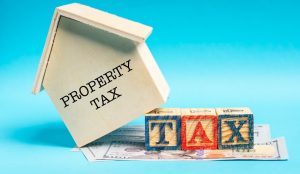
Homeowners should be aware that there are different types of property taxes:
- Municipal tax
- Provincial Tax
- Federal Tax
Municipal taxes are property taxes that are levied by municipalities on the basis of the assessed value of a property. The amount paid by residents or small businesses is based on their tax rates, which vary depending on where they live and how much their home or business is worth.
The municipal tax rate in Manitoba is 1.316% of an individual’s or business’s assessed value (1/100th). Municipalities may also add additional levies to cover specific costs such as road maintenance and public safety services; these are called special levies and do not affect your overall municipal taxes. But it may vary depending on the property and location from 0.1% to 5%.
Insurance Corporation Tax
Every insurer or special broker offering insurance under an insurance contract must pay the insurance corporation’s tax.
The following are the tax rates that will be in force on January 1, 2021.
- 2% of the insurer’s net Manitoba premiums on life insurance and accident and illness insurance contract
- 3% of the insurer’s net Manitoba premiums on other insurance contracts (excluding property insurance)
- 4% of the insurer’s net Manitoba premiums from property insurance policies. If the insurance contract is for aircraft insurance, automobile insurance, hail insurance, or insurance against loss or harm to an automobile caused by fire (and this insurance is not incidental to automobile insurance), a 3% tax rate is to be used
Tobacco Tax
The Tobacco Tax must be paid to the government when you purchase cigarettes, cigars, or snuff.
The tax is applied to all types of tobacco products. The tax was first implemented in 1991 and has been increased twice since then. The Government of Manitoba sets the current rate based on inflationary factors and population growth over time.
- Cigarettes – $60.00 per box
- Cigars – 75% of the regular selling price (maximum fee of $5.00 per cigar)
- Raw leaf tobacco costs $27.5 per gram
- Tobacco fine cut – $45.5 per gram
- All other tobacco goods – $29.0 per gram
Fuel Tax
The fuel tax is a tax on the sale of gasoline and diesel. It’s one of the largest provincial sources of revenue, accounting for about $2 billion per year.

The federal government collects this tax at the pump, while Manitoba collects it through its sales and use tax system (SUT). The province also has an excise duty on alcohol products introduced in 2012 but removed in 2017 because it wasn’t generating enough money.
The federal government collects another form of fuel-related revenue through its excise duty on aviation turbine fuel (ATF), which varies depending on whether you live in Manitoba or Alberta, a difference that affects how much ATF costs before you fill up at your local gas station.
The federal government charges excise duty on all fuel types, but it’s calculated differently depending on how you use it.
Mining Tax
The Mining Tax applies to all operators engaged in mining and processing minerals in Manitoba. The tax is applied at rates on mining profit instead of a royalty basis that would apply a rate to how much minerals are extracted from the ground. In addition, there is a 0.5% special tax on mining profits. In most cases, it is fully refundable based on certain income tax calculations.
The Mining Tax was introduced in Manitoba in 2010 to promote economic development by encouraging investment in the mining sector. The purpose is to provide an incentive for operators to invest in Manitoba’s resource sectors while also providing support for training and job creation opportunities.
Ways to Pay Taxes in Manitoba
There are several methods to pay taxes in Manitoba. You can pay them online, by mail, or at a tax refund centre.
All taxes, including business taxes are due on April 30th of each year. But if you’re late paying your taxes, there’s still time to file for an extension until June 30th of the following year. It’s best to contact your local government office or city hall before filing for an extension so they can ensure all necessary information is available before processing your request.
Conclusion
If you’re in Manitoba and are wondering about the taxes in your province, there’s no need to worry. The province has a simple, straightforward system that makes paying taxes easy and convenient. All you have to do is pay the right amount of money at the right time!
FAQ – What Are the Taxes in Manitoba?

How Much is the Tax in Manitoba?
The Manitoba government taxes at a rate of 10.80% to 17.40%. This is the same as every other province and is in line with the rest of Canada.
The Manitoba tax rate is higher than most countries around the world. However, it’s still much lower than what you’ll find in some countries in Europe, Asia or South America—or even American states like California!
When Did Manitoba PST Change to 7?
In July 2018, Manitoba’s PST changed to 7% from 5%. This is the first time the province has had a high rate since it was introduced in 2004.
The change was part of a series of tax reforms Premier Brian Pallister’s government announced in their 2018 budget. The government said they were looking to make life more affordable for Manitobans. Reduce income inequality by making sure all people pay their fair share through progressive taxation measures such as higher rates on higher-income earners who had been able to avoid paying taxes before because their income was too low or non-existent altogether.
Which Province in Canada Has the Highest Taxes?
The province with the highest taxes in Canada is likely to be Quebec and Nova scotia. This can be attributed to the fact that it has a relatively high tax rate on income from all sources (including capital gains) and personal income tax brackets that are higher than those of other provinces.
Quebec has a progressive income tax system with five brackets ranging from 15% to 25.75%.
What is Exempt From PST in Manitoba?
Small firms with annual taxable sales under $10,000 are not required to register and collect the PST.
Exempting small firms from PST registration and collection means you’re not required to pay the tax on your sales or purchases made in Manitoba.
Do I Need to Register for PST in Manitoba?
Yes, you must register for PST in Manitoba. You can do the registration online or by mail. The registration deadline is June 15th of each year and is due at least four weeks before the end of your tax year (usually April 30th). If you fail to file your return by the deadline, it will incur penalties and interest from that date forward.






